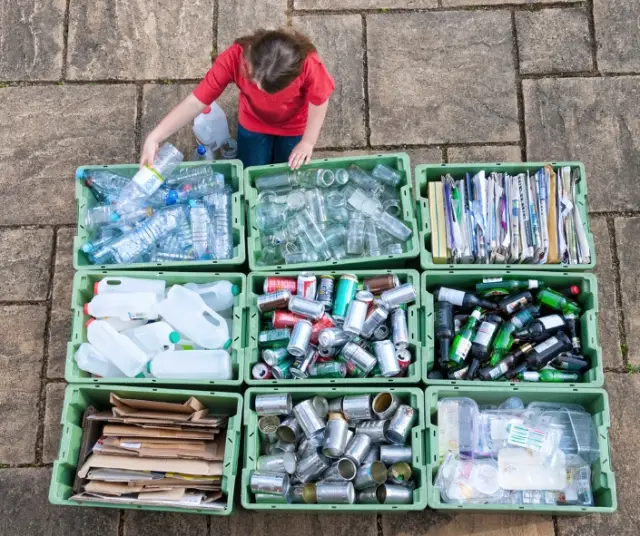World Recycling Day is a significant occasion celebrated around the world each year, with the aim of highlighting the importance of recycling for the environment and society at large. This day serves as a timely reminder of the need to adopt sustainable and responsible practices to preserve our natural resources and mitigate the negative impact of human activity on the planet.
Origin of World Recycling Day
World Recycling Day is rooted in the need to raise awareness about the importance of recycling as a crucial tool in the fight against pollution and environmental degradation. The initiative began to gain traction in the 1970s, when the global environmental movement began to gain momentum. At the time, the world was experiencing an alarming increase in waste generation and pollution, leading to growing concern for the future of the planet.
The concept of recycling, which involves converting used materials into new products, emerged as a viable solution to address these environmental challenges. Recycling helps reduce the amount of waste going to landfills, conserves natural resources by reusing existing materials, and reduces the need to extract new resources from nature.
Importance of Recycling in Environmental Conservation
Recycling plays a fundamental role in environmental conservation for several key reasons:
Pollution Reduction: By recycling materials such as paper, plastic, glass and metal, you reduce the amount of waste that ends up in landfills or incinerators. This helps prevent soil, water and air pollution, as well as reduce the emission of greenhouse gases associated with the production of new materials.
Conservation of Natural Resources: Recycling allows us to conserve natural resources by reusing existing materials instead of extracting new resources from the Earth. For example, paper recycling helps preserve forests by reducing the need to cut down trees for the production of new paper.
Energy Savings: Manufacturing products from recycled materials generally requires less energy than production from virgin raw materials. Recycling therefore contributes to the reduction of energy consumption and greenhouse gas emissions associated with industrial production.
Promoting the Circular Economy: Recycling is a key component of the circular economy, a sustainable economic model in which resources are used efficiently and continually recycled to minimize waste and maximize the value of materials.
Recycling Challenges and Opportunities
Although recycling offers numerous environmental and economic benefits, it also faces several challenges and obstacles that must be addressed to maximize its effectiveness:
Contamination of Recyclable Materials: Contamination of recyclable materials with unwanted substances, such as food, oils or chemicals, can make recycling difficult and reduce the quality of the final products. It is crucial to educate the public about the importance of properly separating recyclables and disposing of them correctly.
Insufficient Infrastructure: In many places, recycling infrastructure is not adequately developed to manage the increasing amount of waste generated. Investments in recycling facilities, collection systems and sorting technologies are needed to improve recycling efficiency.
Lack of Awareness and Participation: Despite awareness-raising efforts, many people are still not fully aware of the importance of recycling or do not actively participate in it. Ongoing educational campaigns are required to promote responsible recycling habits and encourage behavioral change at individual and community levels.
Economic Challenges: In some cases, recycling can be more expensive than traditional waste disposal, especially when prices for recyclable materials fluctuate in the global market. Sustainable financing models need to be explored to support recycling programs and make the process economically viable in the long term.
Despite these challenges, recycling offers a number of opportunities to drive innovation, create green jobs and promote global sustainability. Transitioning to a circular economy and adopting more responsible consumer practices are crucial steps to fully harness the potential of recycling in protecting the environment and creating a more sustainable future.
Individual Actions to Promote Recycling
Each individual can contribute significantly to the promotion of recycling and environmental conservation through simple but effective actions:
Reduction and Reuse: Before recycling, it is important to reduce the consumption of disposable products and reuse those that still have a useful life. Opting for durable products, using reusable bags, and repairing items instead of throwing them away are effective ways to minimize waste generation.
Correct Waste Separation: Learning to properly separate recyclable materials, such as paper, cardboard, plastic, glass and metal, helps facilitate the recycling process and ensures that materials are reused efficiently.
Education and Awareness: Sharing information about the importance of recycling with friends, family and colleagues can help increase public awareness and encourage greater participation in community recycling programs.
Support for the Circular Economy: Choosing products made with recycled materials and supporting companies that adopt sustainable and environmentally friendly practices contributes to promoting the transition towards a circular economy.
Active Participation in Recycling Programs: Making the most of local recycling programs, including separating waste at home and participating in recyclable materials collection events, is an effective way to contribute to sustainable waste management.
By promoting recycling and environmental conservation, we can work together to protect natural resources, reduce pollution, and create a healthier, more prosperous future for generations to come. Through individual and collaborative actions, we can make a meaningful difference and celebrate the power of recycling to transform our world towards sustainability and environmental responsibility.
